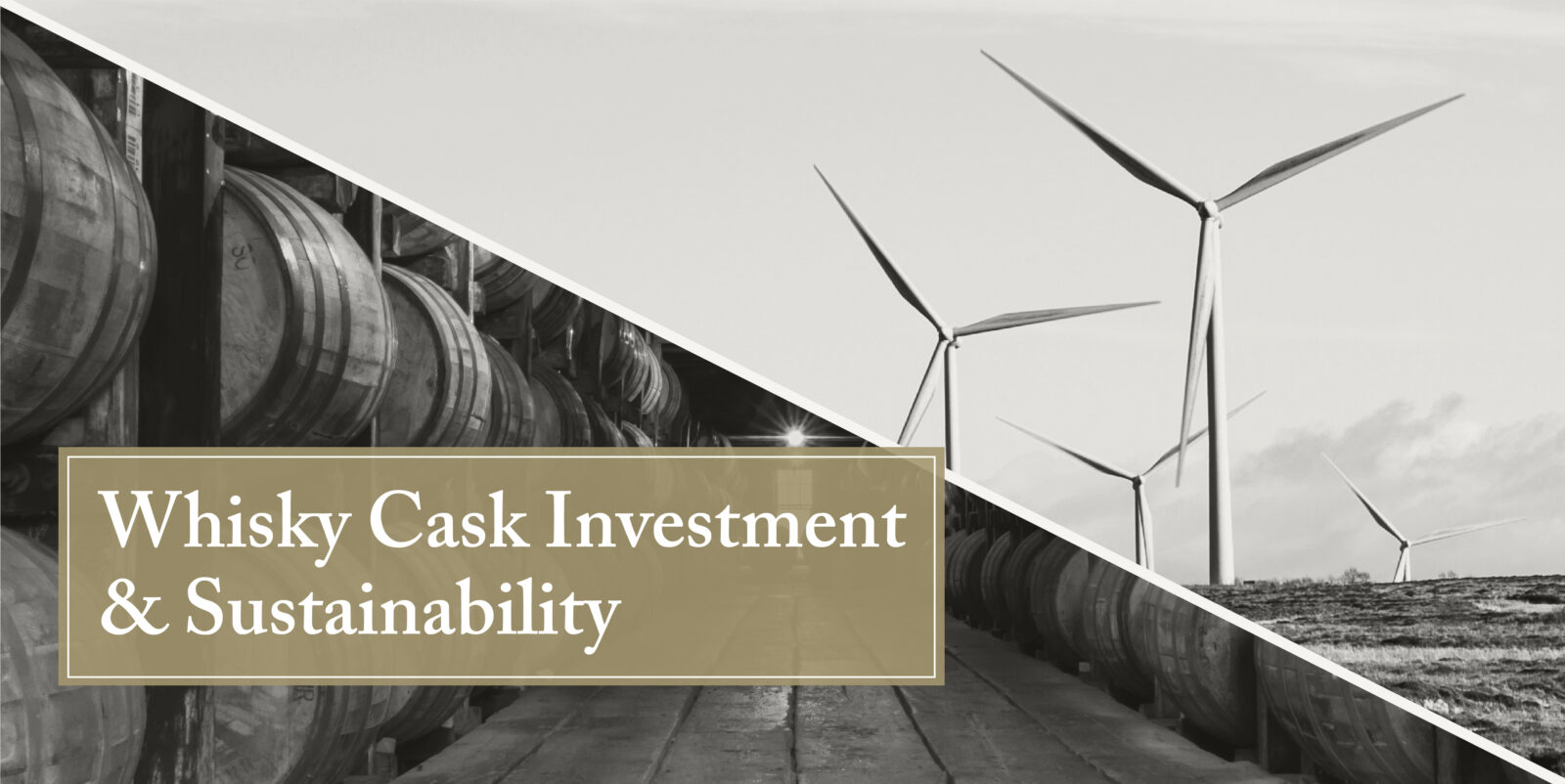As the world turns its attention to Cop26, global industry is asking itself a vital question: how can business help to mitigate its impact on the environment and take more active steps in the fight to combat the climate crisis? With the event taking place in Glasgow and, considering the central importance of Scotch to the UK economy, the green credentials of the whisky industry are increasingly coming under the spotlight.
Towards Net Zero
According to the latest figures, the Scotch Whisky accounts for 21% of all UK food & drink exports and supports 42,000 jobs across the UK, 10,500 of them in Scotland with 7,000 located in rural communities. The production of ‘the water of life’ is closely tied to the natural resources of Scotland, so tackling climate change, while protecting the central role of whisky production for the economy, is a particularly pressing issue.
The good news is that the whisky industry is making a conscious effort to take responsibility in the race towards Net Zero, with ambitious targets affecting every stage of the manufacturing process. In 2009, the SWA (Scotch Whisky Association) launched its Environmental Strategy, the first of its kind to cover an entire sector, with voluntary targets for water, use of non-fossil fuels and energy efficiency, packaging and sourcing of sustainably produced casks. This industry-leading strategy was refreshed in 2016 to align with government ambitions and to cover activities like the circular economy and sustainable land use, including peat restoration.
Ambitious Targets
Now, as the urgency of the issue is increasing and governments around the world are committing themselves to their own net zero targets, the Scottish Whisky industry has decided to aim for an ambitions plan of reaching net zero by 2040, a full ten years before the overall objective for the rest of the UK economy.
Given its reliance on natural resources (like spring water, barley and wood) perhaps it’s unsurprising that the Scotch whisky industry is making progress to work in harmony with its surroundings, building up sustainable practices as an inseparable feature of producing the world’s best whisky.
Bruichladdich & Mc’Nean: Making a Difference
Although the climate targets of the Scottish Whisky Industry will require some profound shifts in production technologies and energy usage, there are a number of distilleries that are already making a start towards the goal of net zero.
On the idyllic island of Islay, the Bruichladdich distillery emphasizes its green credentials, using Scottish barley, Hebridean water and traditional whisky making techniques. However, the distillery still relies on fuel brought in on diesel-powered ferries, to fire the boilers. Together, Islay’s nine distilleries burn up to 15m litres of oil each year, creating a significant amount of CO2 in the process.
Bruichladdich has now set itself the challenge of ensuring that by 2025 its distillation process will be net zero, pioneering the use of an innovative type of green hydrogen production using green electricity and water electrolysis. It also plans to use renewables like wind and, in future, tidal power for all its energy needs.
A number of other distilleries are now switching to anaerobic digestion, using their own whisky-production byproducts for fuel, biomass boilers and, as a step to replace energy intensive fuel oils, more efficient gas boilers. There has also been a move towards recycled packaging and glass, with whisky giant Diageo recently announcing that over the next 10 years, the company aims to transition to 100% recycled materials for all its packaging.
However, perhaps the most impressive move toward sustainability has been made by the boutique whisky brand Mc’Nean, which is the first carbon neutral distillery in Scotland. This organic whisky produced on the Morvern peninsula in Argyll, was recently certified as the UK’s first net zero whisky distillery, after investing in an expensive biomass boiler fuelled by woodchip from a commercial forest plantation nearby.
Mc’Nean’s philosophy, which aims to promote biodiversity, a connection to the local economy and careful management of resources promotes an ethical approach to whisky making that could have a wider impact across the industry as it continues the journey towards net zero.
Whisky Cask Investment: A Greener Alternative?
When it comes to investment, choosing more sustainable options makes sense, both in terms of the future performance of their investment, and as part of an individual’s effort to put their funds into greener investment vehicles in order to address their own carbon footprints.
The nature of whisky casks can make them an attractive choice for those who are looking to prioritize more sustainable investing:
- Wood from sustainably grown forests. Nowadays, the majority of oak used for casks comes from trees that were grown and managed through sustainable forestry in France or the USA.
- Recycled throughout their lifetime. Most whisky casks once held another spirit, normally bourbon or sherry. Therefore, the industry is fundamentally built on the principles of the circular economy, where raw materials are kept longer in production cycles and used repeatedly, thereby generating much less waste.
- Low carbon footprint. Whisky cask warehouses are designed to house casks in optimum conditions for the maturation of the whisky. That means they need to sit quietly for years in natural conditions at a consistent temperature, without any further intervention. Few assets can increase so significantly in value, while using so little energy in the process.
- Supporting local business. Whisky has become a truly global industry, but its roots have always been in local communities. Even today, in our mechanised world, making a fine whisky is impossible without the knowhow passed down through generations of whisky makers. When purchasing a whisky cask, investors are participating in a traditional economy that supports many local businesses and communities throughout Scotland.
From Profit to Planet
As an investor, when deciding the best place to put your money, you need to consider different factors, the most important being the returns you can expect and the risks related to your investment. If those are the main drivers of your investment choice, then whisky casks are a great option to complement your portfolio, with performances that have consistently outperformed most other tangible and non-tangible assets in terms of appreciation and security.
However, if your investment choice also includes a desire to encourage greater sustainability and environmental protection, then you may find that investing in whisky casks can also help to provide a greener dimension to your portfolio.

